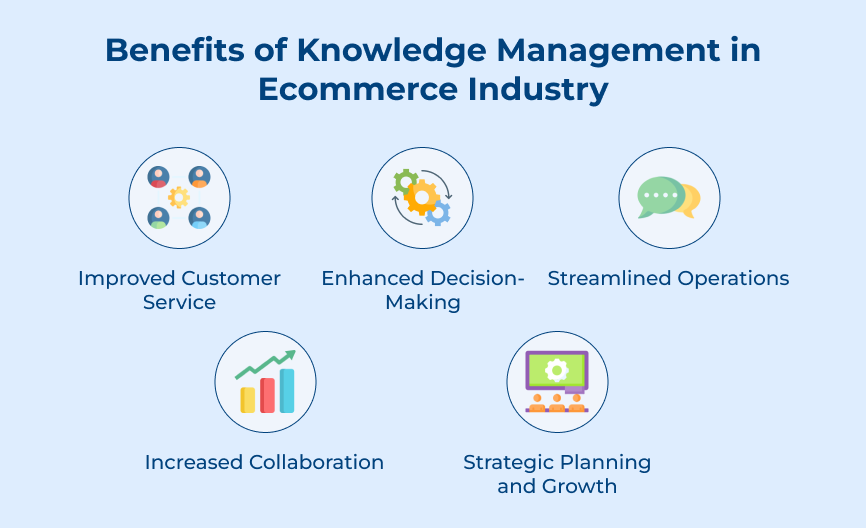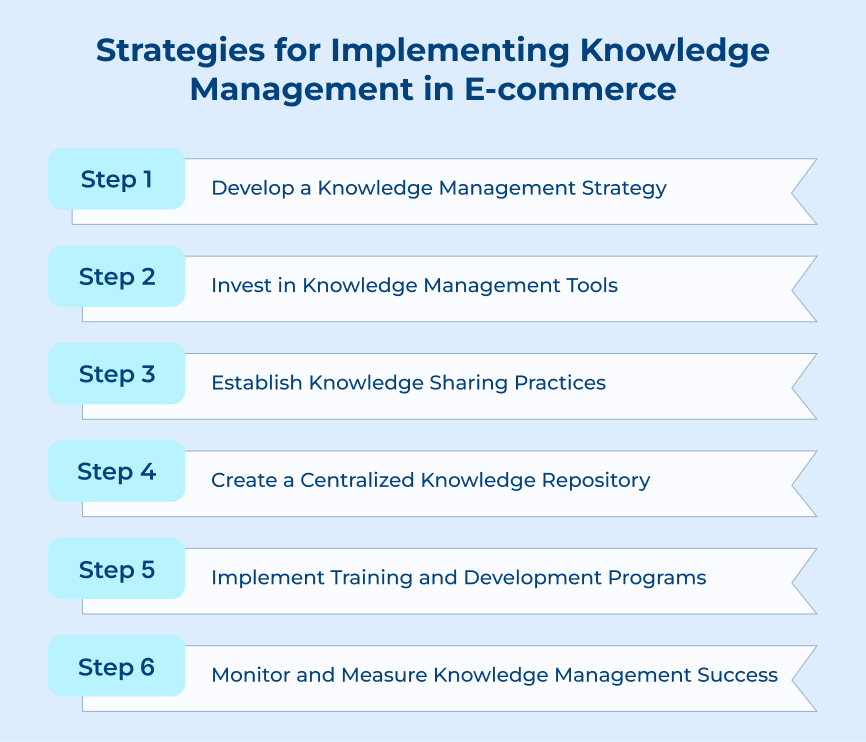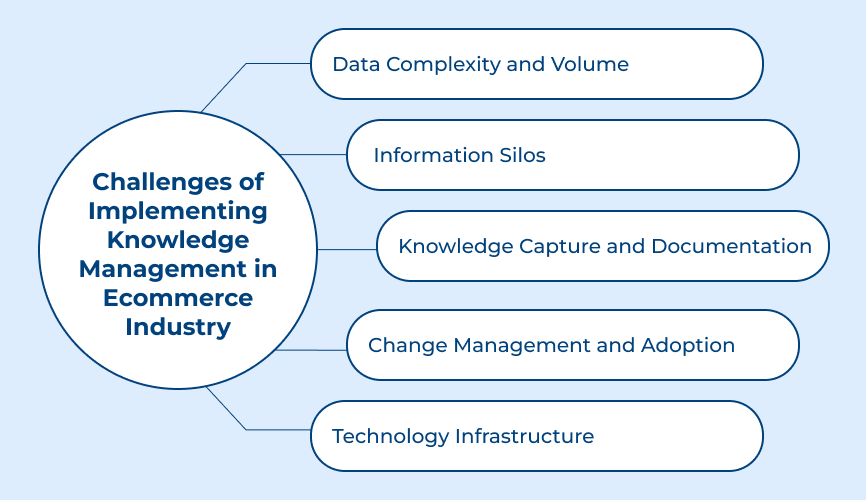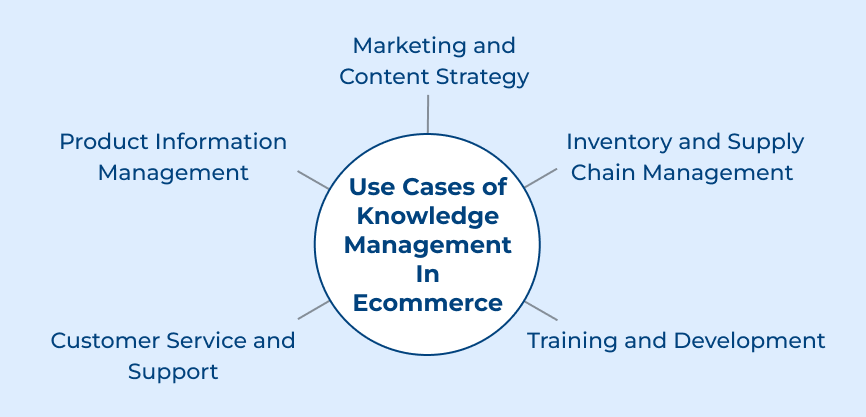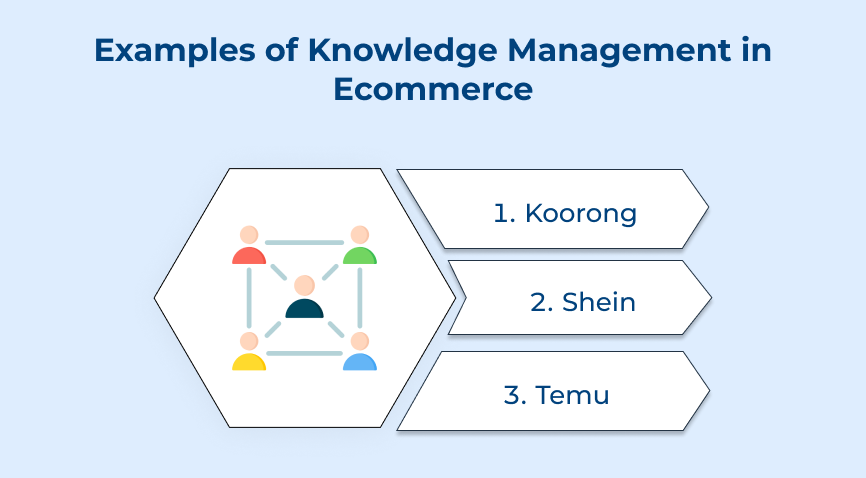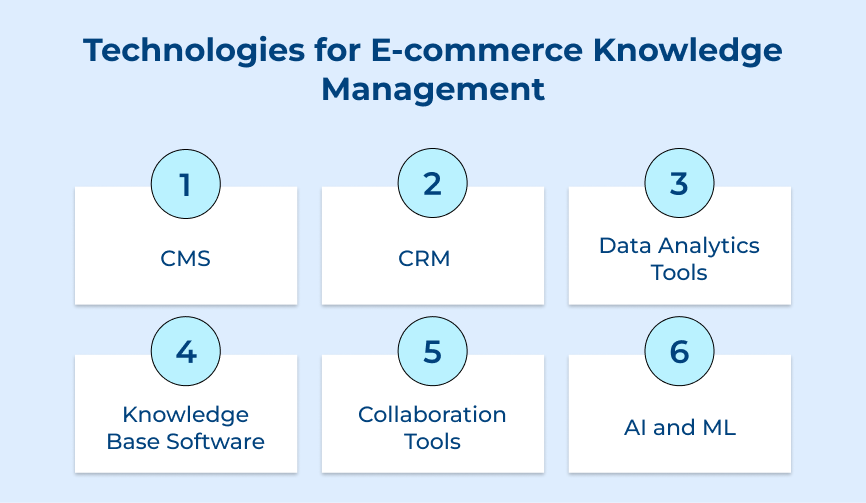1. Develop a Knowledge Management Strategy
Developing a knowledge management strategy is crucial for e-commerce businesses to effectively manage and utilize their vast amounts of information. The strategy involves implementing processes to capture, store and share knowledge within the organization. One key aspect of this strategy is creating a centralized knowledge base where employees can easily access and contribute information.
An example of implementing knowledge management in ecommerce could be setting up a platform where customer service representatives can document frequently asked questions. It allows new employees to quickly learn how to address common customer inquiries and provides consistency in customer service.
Actionable tips:
- Promotes a culture of knowledge sharing within the organization by encouraging employees to contribute their insights and experiences to the knowledge base.
- Implement training programs to educate employees on how to effectively utilize the knowledge management systems and processes in place.
- Regularly update the knowledge base to ensure that the information remains relevant and accurate.
2. Invest in Knowledge Management Tools
Investing in knowledge management tools is a key strategy for implementing knowledge management in ecommerce. Knowledge management tools help businesses organize and access their valuable information. It leads to improved decision-making, increased productivity and better customer service.
Let’s look at an example of a company that could implement a knowledge management tool. It allows employees to easily access product information, customer data and best practices.
Actionable tips:
- Identify the key knowledge areas within the organization that need to be managed. It may include product knowledge, customer information or internal processes.
- Select an appropriate knowledge management tool that meets the specific needs of the business. Some popular tools include knowledge bases, document management systems and collaboration platforms.
- Train the employees on how to use the knowledge management tool effectively. Encourage a culture of knowledge sharing and make it a priority within the organization.
3. Establish Knowledge Sharing Practices
Establishing knowledge-sharing practices is essential for implementing successful knowledge management in e-commerce. The strategy involves creating processes for employees to share information, best practices and insights with each other. Establish a culture of collaboration and continuous learning.
One example of implementing knowledge-sharing practices in e-commerce is by setting up an online platform where employees can contribute their experiences. The platform can serve as a centralized hub for knowledge sharing and encourage employees to engage with each other. It helps to stay up-to-date on industry trends.
Actionable tips:
- Encouraging employees to participate in regular knowledge-sharing sessions, either through virtual meetings or in-person workshops.
- Creating incentives for employees to share their knowledge such as recognition or rewards for valuable contributions.
- Implementing technology solutions such as knowledge management software, that make it easy for employees to access and share information across the organization.
4. Create a Centralized Knowledge Repository
Having a centralized knowledge repository is crucial for effective knowledge management. The strategy involves creating a single, easily accessible location where all relevant information, data and resources can be stored. The importance of this strategy cannot be overstated. Having a centralized knowledge repository ensures that everyone in the organization has access to the same up-to-date information.
Let’s look at an example of an e-commerce company that may use a centralized knowledge repository to store data. The repository can be accessed by all employees, from customer service agents to marketing managers. It allows seamless communication and alignment across departments.
Actionable tips:
- Choose a reliable knowledge management system that fits the organization’s needs and budget.
- Develop a clear process for organizing and updating information within the repository.
- Train employees on how to use the repository effectively and encourage active participation to ensure its success.
5. Implement Training and Development Programs
Implementing training and development programs is a crucial strategy for implementing knowledge management in ecommerce. These programs aim to enhance the skills and knowledge of employees. It ensures they have the necessary expertise to effectively manage and utilize information within the organization.
Training and development programs are important as they help employees stay up-to-date with the latest trends in e-commerce. It ensures they can effectively implement knowledge management practices and improve overall business performance.
Actionable tips:
- Conducting regular training sessions for employees.
- Providing access to online courses and resources.
- Offering hands-on workshops or seminars.
6. Monitor and Measure Knowledge Management Success
Implementing knowledge management in ecommerce is vital for maintaining a competitive edge in the digital marketplace. One key strategy for ensuring the success of knowledge management is to regularly monitor and measure its effectiveness. Tracking key metrics and analyzing data allows ecommerce businesses to identify areas of improvement.
Monitoring and measuring knowledge management success is important because it allows businesses to assess the impact of their strategies. Let’s take an example of tracking metrics such as employee engagement with knowledge-sharing platforms. The number of resolved customer inquiries and the speed of information retrieval can provide valuable insights into the efficiency of knowledge management practices.
Actionable tips:
- Utilize analytics tools to track key performance indicators related to knowledge management.
- Conduct regular survey sessions to gather insights from employees and customers.
- Implement a system for documenting and sharing lessons learned to ensure continuous improvement.
Challenges of Implementing Knowledge Management in the Ecommerce Industry
There are several hurdles that organizations must navigate to fully harness the power of knowledge in driving business growth and success.






